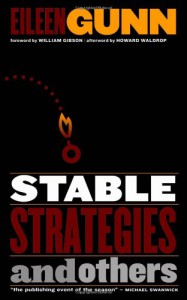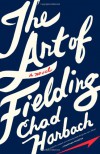 "The future has imploded into the present," writes Charles Cross, quoting Gareth Branwyn's Is there a Cyberpunk Movement?. Cory Doctorow's Makers is another reminder that what looks like the future is already here.
"The future has imploded into the present," writes Charles Cross, quoting Gareth Branwyn's Is there a Cyberpunk Movement?. Cory Doctorow's Makers is another reminder that what looks like the future is already here. This book, set from the 20-teens and on, describes a New Work economy and its after-effects. It sounded like an interesting premise: a pair of Florida hacker/inventors work with 3-dee printers to create facsimiles of three-dimensional objects. They begin making kitschy, retro objects for collectors, move on to large-scale production (which alters the entire U.S. economy as everybody becomes a "maker," and then crashes as the market shifts. Our two inventors continue their path, developing a "ride" maintained by bots that replicates, well, you'll have to see about that when you read it, but as with Doctorow's Down and Out in the Magic Kingdom, Disney becomes crucial.
What freaked me out, though, was that these 3-dee printers are not just an imaginative future technology, but already exist. "MakerBots" are small, open source, 3D printers that use plastics to extrude whatever object is programmed into the Bot. They are described by their sellers, but also at places like boingboing.net and by Make Magazine, a site for hackers, builders, and inventors. Call me twen-cen, but I was amazed by the creations that are described here, and that they are for the most part outside of the corporate/university knowledge structure. Witha 3D photo visualizer and a MakerBot, you can create and re-create anything at all, apparently.
Although Doctorow incorporates some decent plot movement to get you through the book, it is also an endeavor in info dumping, right from the first dozen pages and on through to the conclusion. More important than the characters or their endeavors (though the sub-plot of the "fatkins" was awesome!) is the vision of a post-corporate economy and an alternate model of work that Doctorow is developing. I'll discuss this more on my blog, but for now, suffice it to say that it is an impressive vision of the possibilities of human creativity combined with a hacker savvy in which everything that exists can be made into a part of a greater creative commons. As with Little Brother, the message here is that information is power when it is shared, not when kept secret.
And that, I think, is a message we ignore at our great peril.


















